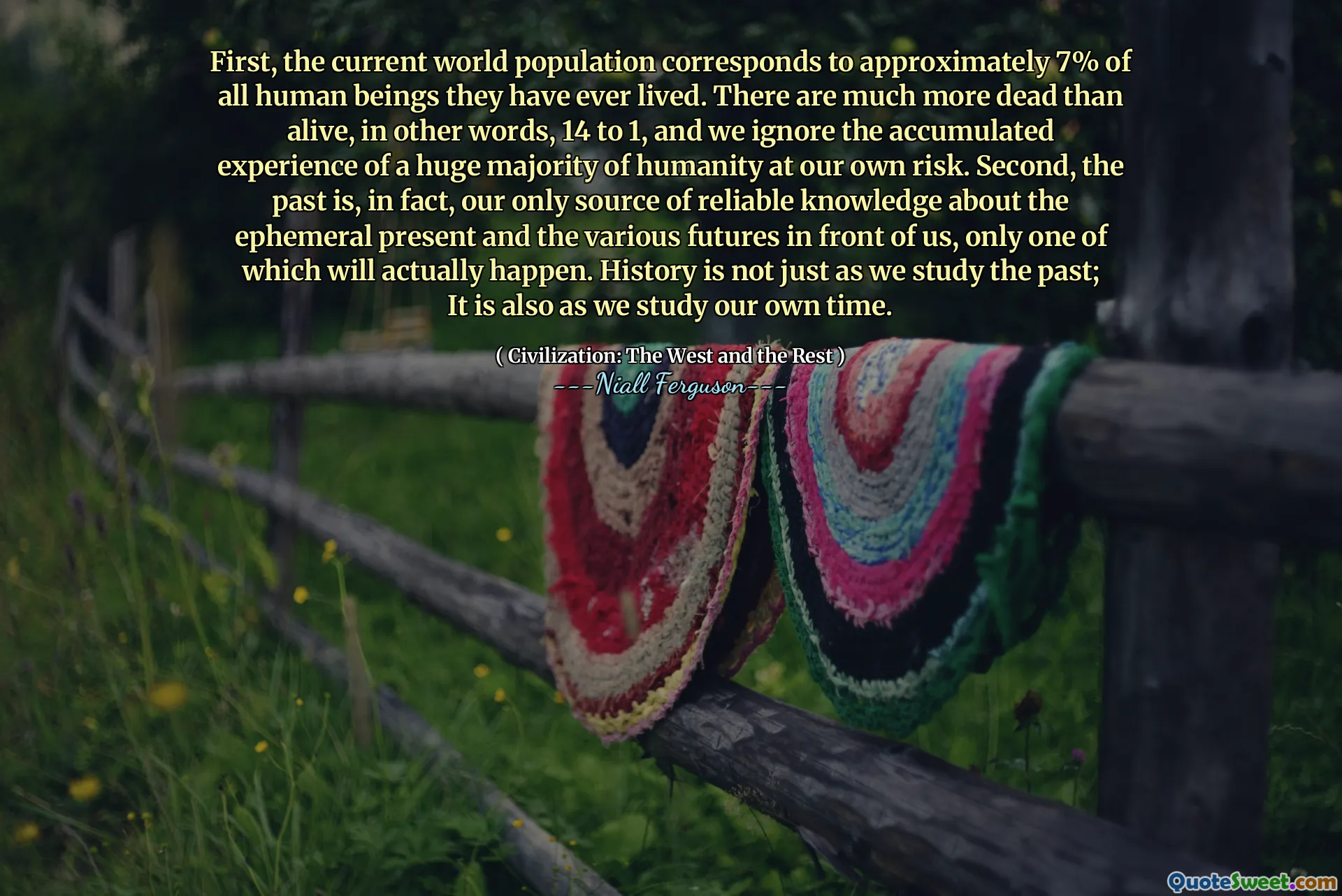
First, the current world population corresponds to approximately 7% of all human beings they have ever lived. There are much more dead than alive, in other words, 14 to 1, and we ignore the accumulated experience of a huge majority of humanity at our own risk. Second, the past is, in fact, our only source of reliable knowledge about the ephemeral present and the various futures in front of us, only one of which will actually happen. History is not just as we study the past; It is also as we study our own time.
Currently, around 7% of all people who have ever lived are alive today, highlighting that for every living person, there are approximately 14 who have passed away. This stark contrast suggests that humanity is overlooking the collective knowledge and experiences of the vast majority of people throughout history, which presents a risk for our understanding and decision-making in the present.
Furthermore, history serves as a critical resource for gaining insight into our current situation and the potential futures that lie ahead. By studying the past, we can better comprehend the present moment and the uncertainties of what is to come. Thus, understanding history is not merely an academic pursuit; it is essential for navigating our contemporary world effectively.











